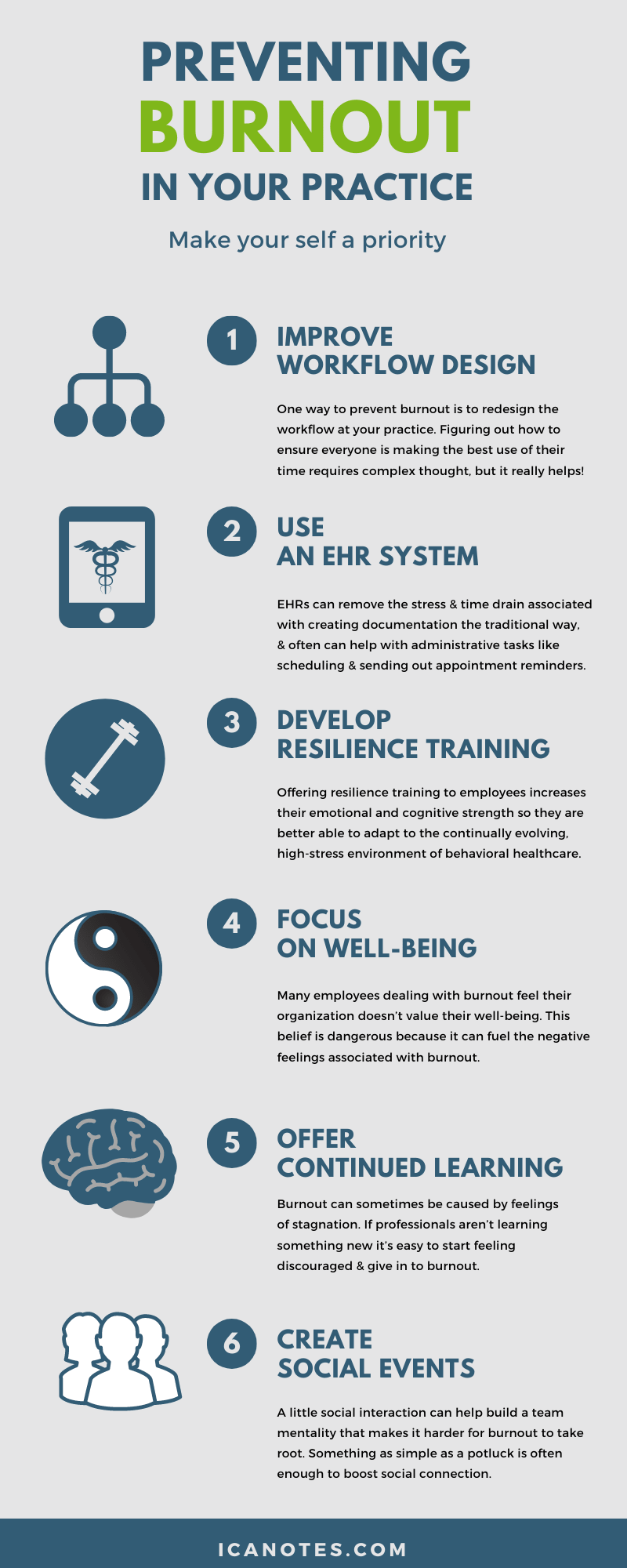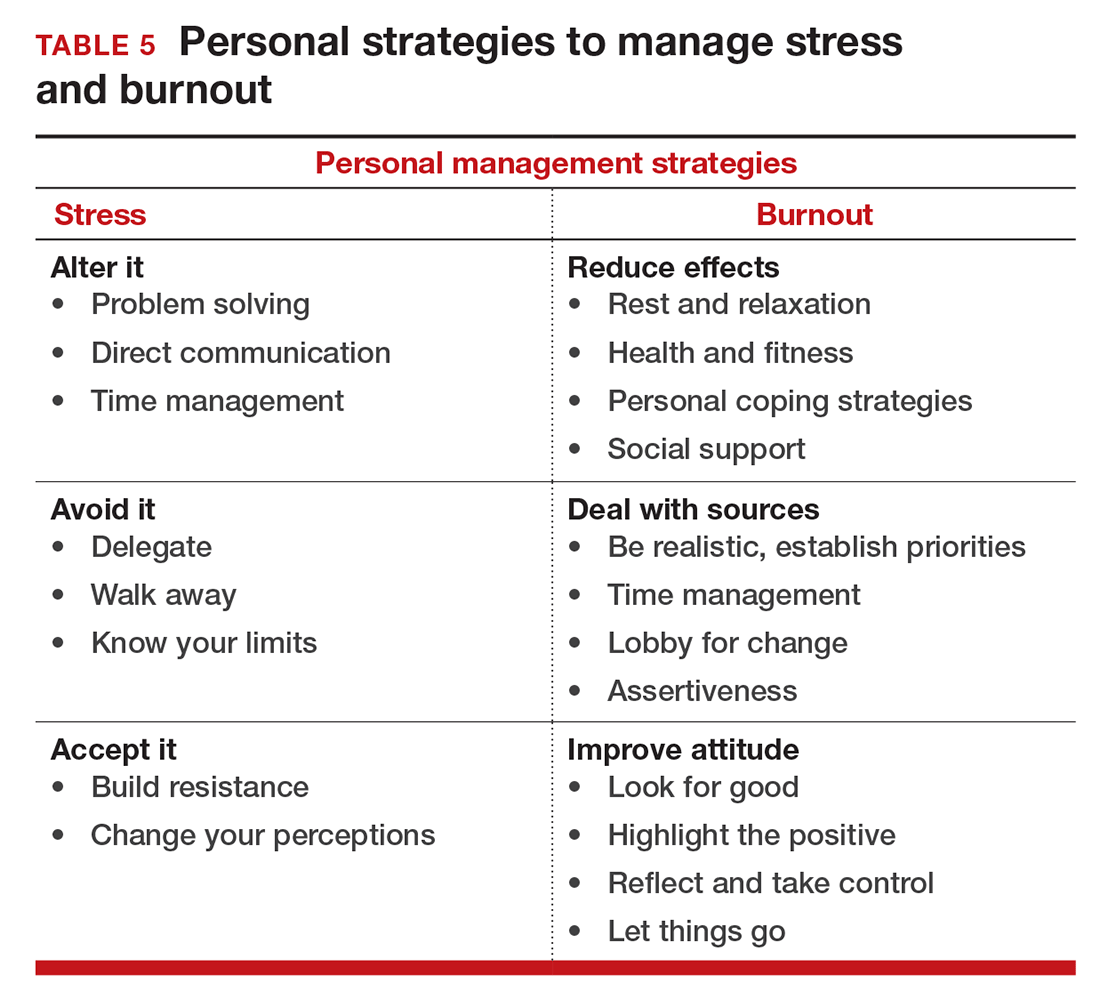For female athletes who strive for greatness on the field, court, or track, burnout can be an all too real and debilitating adversary. The constant demands of training, competition, and performance can take a toll on both the body and mind, rendering even the most dedicated sportswomen susceptible to physical and emotional exhaustion. However, with expert advice and proven strategies, it’s possible to navigate the treacherous waters of burnout and emerge stronger than ever.
Every athlete dreams of achieving peak performance, but few realize that it goes beyond just physical prowess. The mental and emotional aspect of sports can play an equally important role in success. Preventing and effectively managing burnout is not just about avoiding physical fatigue, but also about safeguarding mental resilience and emotional well-being. By implementing the right defenses against exhaustion, female athletes can unlock their full potential and experience sustainable success in their athletic pursuits.
Revolutionize Your Health & Lifestyle!
Dive into the world of Ketogenic Diet. Learn how to lose weight effectively while enjoying your meals. It's not just a diet; it's a lifestyle change.
Learn MoreWhile the word burnout may conjure images of complete depletion and surrender, it doesn’t have to be an inevitable outcome for dedicated sportswomen. Through a comprehensive approach that encompasses physical recovery, mental fortitude, and emotional support, it is possible to keep burnout at bay. This expert handbook will provide invaluable insights, strategies, and actionable tips to help female athletes stay energized, motivated, and resilient, both on and off the field.
- Understanding Burnout and Its Impact on Female Athletes
- The Definition of Burnout
- Recognizing the Signs of Burnout
- Effects of Burnout on Performance and Well-being
- Prevention Techniques for Sportswomen
- Balancing Physical and Mental Demands
- Setting Realistic Goals and Expectations
- Implementing Rest and Recovery Strategies
- Effective Strategies for Managing Burnout
- Questions and answers
Understanding Burnout and Its Impact on Female Athletes

In this section, we will delve into the concept of burnout and explore how it affects sportswomen. Burnout is a phenomenon that can have detrimental effects on athletes, both physically and mentally. It occurs when individuals experience chronic and excessive physical and emotional exhaustion, often accompanied by a sense of reduced accomplishment and loss of personal identity.
Women in sports face unique challenges that can contribute to burnout. These challenges may include societal pressures, gender inequality, and balancing multiple roles and responsibilities. Understanding the impact of burnout on sportswomen is crucial for developing effective prevention and management strategies that can support their overall well-being and athletic performance.
- Physical Effects: Burnout can lead to a variety of physical symptoms and health problems in female athletes. These may include fatigue, persistent muscle soreness, frequent injuries, compromised immune function, and sleep disturbances.
- Emotional and Mental Effects: Burnout can significantly impact an athlete’s mental well-being. Sportswomen may experience symptoms such as persistent feelings of sadness, irritability, decreased motivation, and difficulty concentrating. It can also lead to the development of mental health disorders such as anxiety and depression.
- Performance Decline: Burnout not only affects an athlete’s physical and mental health but also their performance. Sportswomen may experience a decline in their athletic abilities, reduced enjoyment and satisfaction in sports, and decreased commitment and engagement in training and competitions.
- Social and Interpersonal Impact: Burnout can also have a negative impact on sportswomen’s relationships and social interactions. They may withdraw from social activities, experience conflicts with coaches and teammates, and feel a sense of isolation.
Recognizing the signs and understanding the impact of burnout on female athletes is the first step towards prevention and effective management. By addressing the unique challenges they face and implementing strategies to promote physical and mental well-being, sportswomen can thrive both on and off the field.
The Definition of Burnout
In the realm of sports, burnout is a commonly discussed topic that affects athletes both mentally and physically. It is a state of chronic exhaustion and decreased motivation, often resulting from prolonged and intense physical or mental activity. Burnout can manifest itself in various ways, including emotional fatigue, decreased performance, and a decline in overall well-being.
When it comes to sportswomen, burnout can be particularly challenging as they strive to achieve excellence in their chosen field while managing various other responsibilities, such as education, family, and social commitments. It is crucial for sportswomen to recognize the signs of burnout early on and take proactive steps to prevent or effectively manage it.
Burnout is not simply feeling tired after a strenuous workout or experiencing a temporary loss of motivation. It is a deeper, more prolonged state of physical and emotional exhaustion that can significantly impact an athlete’s performance and overall quality of life. The causes of burnout can vary, but they often involve a combination of excessive training, high-pressure competition, inadequate recovery, and a lack of work-life balance.
Recognizing the signs of burnout is essential for athletes to intervene early and seek appropriate support. Some common indicators of burnout include frequent and unexplained fatigue, difficulty concentrating, decreased enjoyment or satisfaction in training, persistent irritability or mood swings, and increased susceptibility to illness or injury. It is crucial for sportswomen to pay attention to these signs and not dismiss them as temporary setbacks.
While burnout can be challenging to overcome, it is crucial for sportswomen to prioritize their well-being and take proactive measures to prevent it. This includes establishing realistic goals, maintaining a balanced training schedule, seeking support from coaches and mentors, engaging in self-care practices, and finding ways to restore mental and physical energy. By understanding and addressing the definition of burnout, sportswomen can navigate their athletic journey with resilience and maintain their passion for their chosen sport.
Recognizing the Signs of Burnout

Understanding and identifying the key indicators of burnout is crucial for any sportswoman. Recognizing these signs early on can help prevent the adverse effects of burnout and enable the implementation of effective strategies for managing and overcoming it.
One of the primary signs of burnout is a persistent feeling of physical and emotional exhaustion. This sense of fatigue goes beyond normal tiredness and can make even the simplest tasks feel overwhelming. It may also be accompanied by increased irritability, decreased motivation, and difficulty concentrating.
Another common sign of burnout is a decline in performance. Sportswomen may notice a noticeable drop in their athletic abilities, making it harder to achieve their goals and meet their usual standards. This can lead to feelings of frustration and disappointment, further exacerbating the burnout cycle.
Moreover, burnout often manifests in the form of an increasingly negative attitude towards one’s sport and training. A once passionate and enthusiastic approach may be replaced by cynicism, loss of enjoyment, and a general feeling of detachment. This negative mindset can be detrimental to both mental and physical well-being.
Furthermore, burnout can also have physical manifestations, such as frequent injuries, unexplained illnesses, and changes in appetite or sleep patterns. These physical symptoms can be a result of heightened stress levels and a compromised immune system, both characteristic of excessive and prolonged burnout.
It is important for sportswomen to pay attention to these signs and take proactive measures when they notice them. Ignoring burnout can have serious consequences for both performance and overall health. By recognizing the signs, they can seek support and implement strategies to restore balance and prevent burnout from becoming overwhelming.
Effects of Burnout on Performance and Well-being
Burnout in athletes can have significant negative effects on both their performance and overall well-being. When athletes experience burnout, they often suffer from a decline in their physical, mental, and emotional capabilities, leading to a decrease in athletic performance.
The physical effects of burnout can manifest in various ways, including decreased strength, endurance, and coordination. Athletes may also experience a higher susceptibility to injuries and a longer recovery time. These physical impairments not only hinder their ability to perform at their best but can also restrict their participation in training and competitions.
Burnout also takes a toll on an athlete’s mental well-being. They may experience heightened levels of stress, anxiety, and depression, which can affect their focus, concentration, and decision-making abilities. This mental strain can lead to a decrease in overall motivation and enjoyment for the sport, making it harder for the athlete to stay committed and engaged.
Furthermore, burnout can have adverse effects on an athlete’s emotional well-being. They may feel a sense of detachment or emotional exhaustion, making it challenging to establish and maintain healthy relationships with teammates, coaches, and other individuals in their lives. This can further contribute to a decline in their overall happiness and satisfaction.
In summary, burnout has a significant impact on an athlete’s performance and overall well-being. It not only affects their physical abilities but also takes a toll on their mental and emotional health. Recognizing and addressing burnout is essential to prevent further deterioration and promote a healthier and more sustainable athletic journey.
Prevention Techniques for Sportswomen
Safeguarding your physical and mental well-being is of utmost importance to maintain a balanced and sustainable athletic lifestyle. This section explores key strategies and practices that sportswomen can adopt to prevent burnout and maximize their performance.
1. Prioritize Rest and Recovery: Recognize the significance of rest to optimize your training and prevent overexertion. Adequate sleep, regular rest days, and incorporating active recovery exercises into your routine can help prevent fatigue and promote muscle repair.
2. Implement Effective Time Management: Balancing the demands of training, competition, and personal life is crucial to prevent burnout. Organize your schedule, set realistic goals, and learn to delegate tasks where possible to ensure you have enough time for recovery and relaxation.
3. Practice Stress Management Techniques: Stress can have a detrimental impact on performance and overall well-being. Explore stress management techniques like mindfulness, deep breathing exercises, and meditation to help manage stress levels and enhance focus during training and competition.
4. Maintain a Nutritious Diet: Proper nutrition plays a vital role in fueling your body and sustaining optimal performance. Consult with a sports nutritionist to develop a personalized meal plan that meets your specific dietary needs and supports your training goals.
5. Build a Supportive Network: Surround yourself with a strong support system of coaches, teammates, and mentors who understand the challenges of being a sportswoman. They can provide guidance, motivation, and camaraderie, helping you navigate through the ups and downs of your athletic journey.
6. Monitor Physical and Mental Health: Regularly assess your physical and mental well-being. Listen to your body, be aware of any signs of overtraining or mental fatigue, and seek professional help if needed. Taking proactive measures to address any issues will contribute to long-term success and prevent burnout.
7. Embrace Variety and Fun: Incorporate variety into your training routine to prevent monotony and maintain enjoyment. Engage in cross-training activities, try new sports or exercises, and focus on finding the joy in your athletic pursuits.
8. Set Realistic Goals: While it’s important to set ambitious goals, make sure they are attainable and aligned with your abilities and resources. Setting unrealistic expectations can lead to frustration and burnout. Break down your goals into smaller milestones to track your progress and celebrate achievements along the way.
Remember, prevention is key when it comes to avoiding burnout and maintaining a healthy athletic lifestyle. By implementing these strategies and techniques, sportswomen can sustain their passion for sports while safeguarding their physical and mental well-being.
Balancing Physical and Mental Demands

In this section, we explore the essential aspect of maintaining a harmonious equilibrium between the physical and mental demands experienced by sportswomen. While excelling in sports requires tremendous physical prowess, it is equally essential to address the mental challenges that come with being an athlete.
- Recognize the importance of rest and recovery:
- Nurture mental resilience:
- Establish realistic goals:
- Practice effective time management:
- Cultivate a support network:
Rest and recovery play a vital role in preventing burnout by allowing the body and mind to rejuvenate. Incorporating rest days into your training schedule and prioritizing quality sleep can help restore energy levels and enhance overall well-being.
Building mental resilience is crucial for sportswomen to navigate the pressures and setbacks that come with their athletic journey. Engaging in mindfulness practices, such as meditation or visualization, can cultivate a positive mindset and strengthen mental endurance.
Setting realistic and achievable goals helps maintain a healthy balance between physical and mental demands. By breaking down larger objectives into smaller, attainable targets, sportswomen can reduce stress and maintain motivation throughout their athletic endeavors.
Efficiently managing time allows sportswomen to allocate sufficient periods for both physical training and mental self-care. Creating a well-structured schedule that includes time for relaxation, hobbies, and socializing can prevent mental exhaustion and facilitate a balanced lifestyle.
Surrounding yourself with a reliable and understanding support network can significantly contribute to balancing physical and mental demands. Seek out mentors, coaches, teammates, or friends who can provide encouragement, guidance, and a safe space for discussing any challenges or concerns you may face.
By acknowledging and proactively addressing the interplay between physical and mental demands, sportswomen can optimize their athletic performance, prevent burnout, and foster long-term well-being.
Setting Realistic Goals and Expectations
In the pursuit of athletic excellence, it is crucial for sportswomen to establish realistic goals and expectations. This section explores the significance of setting attainable targets and outlines effective strategies for managing expectations to prevent burnout and maximize performance.
One key aspect of setting realistic goals is understanding the individual’s abilities and limitations. It is essential to have a clear understanding of one’s strengths and weaknesses to set objectives that are both challenging and achievable. By recognizing personal limitations, sportswomen can set realistic expectations that promote growth and prevent unnecessary stress.
Defining SMART goals is another valuable approach to setting realistic objectives. SMART stands for Specific, Measurable, Attainable, Relevant, and Time-bound. By incorporating these characteristics into goal-setting, sportswomen can create clear and actionable objectives that allow for progress tracking and provide motivation along the way.
Monitoring and adjusting goals is an ongoing process that ensures goals remain relevant and realistic. Sportswomen should regularly evaluate their progress and make necessary adjustments to their objectives. This flexibility allows for adaptation to changing circumstances, avoiding potential disappointment or burnout caused by unrealistic expectations.
Celebrating milestones and progress is vital to maintaining motivation and preventing burnout. Recognizing achievements, no matter how small, provides a sense of accomplishment and encourages continued effort. By celebrating milestones along the way, sportswomen can stay motivated while avoiding the pitfalls of excessive pressure and stress.
Seeking support and guidance from coaches, teammates, or professionals can significantly contribute to setting realistic goals and managing expectations. Collaborating with others can provide valuable perspectives and insights, as well as help in creating a comprehensive plan for success. Additionally, engaging in open and honest communication can also aid in managing expectations and ensuring everyone involved is on the same page.
In conclusion, setting realistic goals and expectations is essential for preventing burnout and optimizing performance. By understanding personal abilities, defining SMART goals, monitoring progress, celebrating milestones, and seeking support, sportswomen can ensure a balanced and sustainable approach to their athletic pursuits.
Implementing Rest and Recovery Strategies
Exploring the Importance of Rest and Recovery Techniques
In the demanding world of sports, the significance of rest and recovery strategies cannot be overstated. Athletes face immense physical and mental challenges, pushing their bodies to the limit to achieve peak performance. However, without adequate rest and recovery, even the most dedicated sportswoman can experience burnout. Implementing effective strategies to prioritize rest and recovery is essential for maintaining overall well-being and maximizing athletic potential.
Elevating the Power of Rest
Rest is not merely a period of inactivity, but a reparative process that allows the body and mind to recuperate. It is a time when the muscles repair themselves, energy stores replenish, and mental exhaustion is alleviated. By embracing rest as an active component of training, sportswomen can optimize their performance and prevent burnout. Incorporating sufficient rest periods into training schedules, taking regular breaks during intense sessions, and allowing for uninterrupted sleep are all fundamental strategies for enhancing recovery and preventing the detrimental effects of overtraining.
Unlocking the Secrets of Recovery
Recovery is a multi-faceted process that includes various strategies aimed at enhancing the body’s ability to repair and adapt. Sportswomen can incorporate different recovery techniques into their routines to optimize the benefits. These may include participating in light activities such as yoga or low-impact exercises, using foam rollers or massage for muscle relaxation, practicing meditation or mindfulness to reduce stress levels, and ensuring proper nutrition and hydration. By diversifying recovery practices, sportswomen can address different aspects of their physical and mental well-being, promoting long-term resilience and preventing burnout.
Creating a Balanced Training Regimen
Rest and recovery strategies should not be seen as separate entities but as integral components of a well-rounded training regimen. By incorporating planned rest days, active recovery sessions, and periodic breaks into their schedules, sportswomen can strike a balance between training and recovery. Building this balance promotes sustainability, prevents chronically elevated stress levels, and reduces the risk of physical and mental fatigue. Prioritizing rest and recovery not only ensures optimal performance but also safeguards the long-term health and well-being of the sportswoman.
Reaping the Benefits of Rest and Recovery
By implementing effective rest and recovery strategies, sportswomen can unlock a range of benefits that extend beyond avoiding burnout. Adequate rest promotes injury prevention, enhances immune function, and improves cognitive abilities. It allows the body to adapt to training stress, leading to improved strength, endurance, and overall performance. Additionally, rest and recovery provide athletes with the opportunity to reconnect with their passions, find balance in their lives, and sustain their love for their sport. Prioritizing rest and recovery is not a sign of weakness, but a strategic choice that empowers sportswomen to reach their full potential.
Effective Strategies for Managing Burnout

In this section, we will explore practical and efficient approaches that can help individuals overcome and prevent burnout. Burnout, which can occur as a result of excessive physical and mental stress, can greatly impact the well-being and performance of sportswomen. It is essential to develop effective strategies for managing burnout to maintain a healthy and balanced lifestyle.
1. Prioritize Self-Care: Taking care of oneself should be a top priority in managing burnout. Engaging in activities that promote relaxation and rejuvenation, such as practicing mindfulness or engaging in hobbies outside of sports, is crucial. By dedicating time for self-care, sportswomen can reduce stress levels and prevent burnout.
2. Establish Boundaries: Setting clear boundaries in both personal and professional domains is crucial to preventing and managing burnout. Learning how to say no when necessary and carving out time for rest and recovery is essential for maintaining physical and mental well-being.
3. Maintain a Balanced Schedule: Balancing training sessions, competitions, and rest is vital in preventing burnout. Scheduling regular breaks and incorporating activities that promote relaxation and enjoyment into daily routines can help prevent exhaustion and minimize burnout risk.
4. Seek Social Support: Building a strong support network of teammates, coaches, and friends is essential in managing burnout. Sharing experiences and discussing challenges with others can provide valuable insights, motivation, and emotional support. Additionally, seeking guidance from mental health professionals can offer specific techniques and strategies tailored to individual needs.
5. Practice Effective Stress Management: Implementing stress-management techniques, such as deep breathing exercises, meditation, or engaging in physical activities outside of training, can help alleviate stress and prevent burnout. Finding what works best for each individual is crucial in managing stress effectively.
6. Set Realistic Goals: Setting realistic and achievable goals is crucial in preventing burnout. By breaking down larger goals into smaller, manageable tasks, sportswomen can maintain motivation and prevent overwhelm, ultimately reducing the risk of burnout.
7. Embrace Positive Routines: Implementing positive routines, such as proper sleep hygiene, healthy eating habits, and regular exercise, can significantly contribute to managing burnout. Taking care of physical health supports mental well-being and helps sportswomen stay resilient in the face of challenges.
8. Monitor and Evaluate Progress: Regularly assessing and reflecting on progress can help sportswomen recognize signs of burnout early on. By identifying potential triggers and implementing appropriate adjustments, individuals can proactively manage burnout and maintain a healthier balance in their lives.
By incorporating these effective strategies into their daily lives, sportswomen can effectively manage burnout and maintain a thriving athletic career while prioritizing their overall well-being.
Questions and answers
How can I prevent burnout as a sportswoman?
Preventing burnout as a sportswoman involves maintaining a healthy balance between training, rest, and recovery. It is important to listen to your body, prioritize rest days, and incorporate mental and physical recovery techniques such as meditation and ice baths. Setting realistic goals, managing stress, and seeking support from coaches and teammates are also crucial in preventing burnout.
What are some signs of burnout that sportswomen should watch out for?
Some signs of burnout in sportswomen include declining performance, lack of motivation, chronic fatigue, increased irritability, frequent injuries, and decreased enjoyment in training or competition. It is important to pay attention to these warning signs and take necessary steps to prevent further burnout.
How can I manage burnout if I have already experienced it?
If you have already experienced burnout as a sportswoman, it is crucial to take a break and prioritize your mental and physical well-being. Seek professional help if needed, such as consulting with a sports psychologist or therapist. Gradually reintroduce training and competition, focusing on enjoyment and establishing a healthier training routine. It is important to learn from the experience and make necessary changes to prevent burnout in the future.
Are there any specific strategies or techniques to prevent burnout?
Yes, there are several strategies and techniques to prevent burnout. These include implementing effective time management, setting boundaries, practicing self-care, and maintaining a support network. Additionally, incorporating cross-training activities, such as yoga or swimming, can help in preventing burnout by diversifying your physical and mental training routine.
Is burnout common among sportswomen?
Burnout is a common issue among sportswomen, especially those who are highly driven and competitive. The pressure to perform at a high level consistently, combined with the physical and mental demands of training, can increase the risk of burnout. It is important for sportswomen to prioritize their well-being and implement strategies to prevent and manage burnout effectively.







